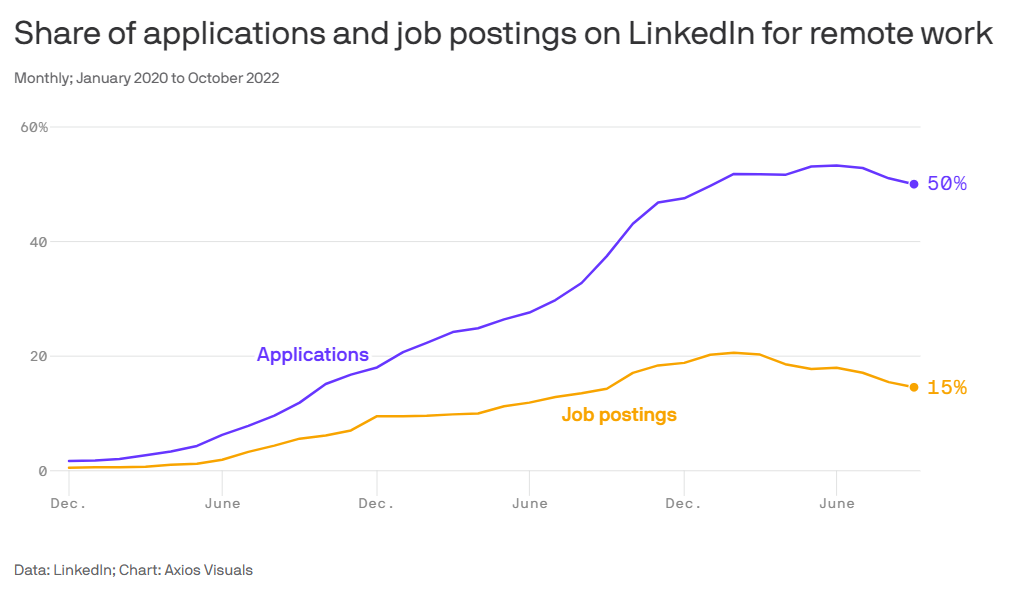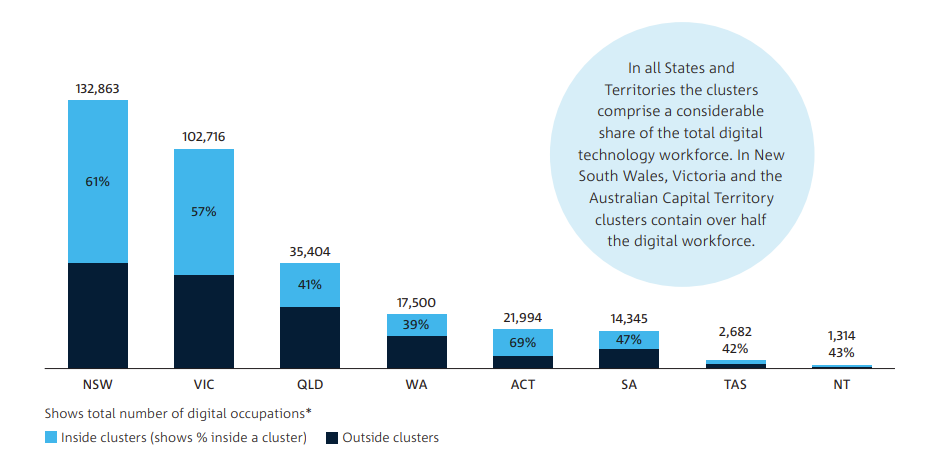
Remote work has been a top desire for tech workers in Australia and New Zealand since the start of the COVID-19 pandemic. Having experienced more flexibility and autonomy working from home, few tech professionals have enthusiastically embraced return-to-office initiatives.
Some tech employers in Australia are doing their best to get them back anyway. Chinese-owned TikTok is a recent addition to the list of large tech employers with Australian employees ordering workers back to the office. Others like Amazon, Meta and Zoom have already done so.
Following the launch of a new remote jobs marketplace, Chris McNamara, chief revenue officer at HR platform Remote, said demand for remote roles was outripping supply. He said remote roles could help tech firms fill jobs faster and predicted remote work was here to stay.
Jump to:
Workers in Australia want the benefits of flexible, remote work
A survey from global payroll provider ADP in mid-2023 found 39% of Australian employees believed flexibility of hours was the most important factor in a job. Two-thirds of global workers surveyed said they would consider looking for a new job if forced back into the office full time.
Australian workers were largely satisfied (60%) with the amount of flexibility they were receiving from local employers. However, many were keen on pushing their remote work and flexibility advantage further, with ADP seeing demand for options like relocating to work overseas.
Remote’s Chris McNamara said remote work was popular in Australasia and around the world.
“We know from data in almost every major market around the world that employees and prospective employees continue to have a dramatic preference for flexibility and for remote work and for the autonomy that it provides,” McNamara told TechRepublic.
Tech workers facing high competition for remote roles
Tech workers who want remote roles may have a tough time getting them. Data published by LinkedIn in the U.S. found 15% of job vacancies advertised on the platform were remote positions, but 50% of applicants say they don’t want to be in the office full time (Figure A).
Figure A

“There’s this massive, outsized level of interest amongst job seekers for the flexibility and autonomy that’s afforded by remote work, but when you look at the number of listings on those job marketplaces like LinkedIn and Indeed, it is actually fractional,” McNamara said.
Remote working market in the tech sector faces challenges
Tech professionals are facing other problems connecting with remote roles. As well as the high volume of applicants, Remote notes that, in some cases, there was a lack of transparency for jobs being labelled or advertised as being remote that were actually hybrid roles.
PREMIUM: Download a remote work policy for your business.
“One of the limitations of existing jobs boards is that they are not specifically focused on the needs of globally distributed talent,” McNamara explained. “There’s less validation or verification around whether or not a job is fully remote or hybrid or not really remote at all.”
Most tech jobs are concentrated in Australia’s big Eastern cities
IT professionals who want to relocate to regional areas are finding tech jobs still concentrated in major cities. CSIRO and Tech Council of Australia research on the geography of Australia’s digital industries found most jobs clustered in Sydney, Brisbane and Melbourne (Figure B).
Figure B

In the report, many digital professionals were found to live within a cluster or be commuting from suburbs within the same city, indicating that many digital jobs still required the ability to be available for in-office hybrid work, rather than having the option to go fully remote.
Could remote work represent a threat to tech worker pay?
Many workers have said they will take a pay cut for the benefits of remote work. However, tech professionals will be concerned that recruiter surveys of CFOs and CIOs have found some employers are already introducing pay tiers for employees that would pay less to those in regional locations.
Remote workers may also find themselves priced out by international workers. A remote developer in Australia earning $150,000 to $200,000 a year, for example, could be replaced via remote platforms by workers in SouthEast Asia or India for between $20,000 to $50,000.
Australian employers weighing pros and cons of remote work
Tech employers are taking different approaches to remote work. Australia’s local tech darling Atlassian is one company that continues to champion remote work for its 11,000 employees; though, many others have requested employees return to the office a few days a week.
SEE: Hybrid work policies are on the rise in Australia.
Employers are weighing up a number of competing factors, from the advantages remote work can have in helping to mitigate severe skills shortages, to the difficulties in building innovative, collaborative cultures in fully digital environments.
Employers could fill roles faster with remote workers
Remote has a fully distributed workforce of 1,200 employees in 70 countries around the world. McNamara said it often receives hundreds or even thousands of applications in periods of as little as 24 to 48 hours, because it is a recognized brand in the remote working space.
“What we typically see from our customers is that opening up jobs through remote work can reduce time to hire between 20% and 50%,” McNamara said. “So, many businesses in the current environment are looking at remote work as a mechanism for speeding up talent acquisition.”
Remote work will remain a part of the tech sector’s future
Despite the push from many tech sector employers to get workers back to the office at least a few days a week, McNamara said many of these have not been successful or well received by tech teams. He argues that claims that the end of remote working is here are exaggerated.
“I think the popular narrative is: The heyday of remote work is over,” he said. “But there’s nothing in the actual data to suggest return to office mandates have meaningfully changed office occupancy or the preferences of individuals as it relates to remote work and flexibility.”
Working from home to play a big role in tech industry’s future
McNamara said Remote’s expectation is that remote work is “here to stay” and that more and more tech companies will embrace a future with remote work — or will risk being left behind.
“I think five years ago, you could be a big blue chip technology company and attract the world’s best talent to your sprawling office campuses because of that value proposition, but the world has changed — that is not the world we live in today,” McNamara said. “Many people are leaving those sprawling office campuses in favour of an increased ability to have the flexibility and autonomy that enables them to bring their work and life together in a way that they will.
“No amount of ping pong tables and catered lunches is going to make up for the fact that remote work enables people to embrace what’s really important in their life. And I think that shift, that fundamental shift that was precipitated by Covid, is here to stay,” he said.
Source of Article



